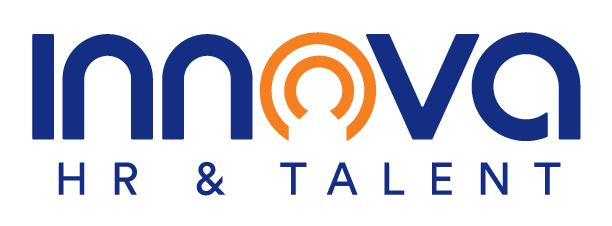Job Description
The Principal DevOps Infrastructure engineer is responsible for leading design and provide Infrastructure as Code (IaC) solutions , and for building robust platforms using automation, as well as documenting automation standards for use by the teams within the organization. This individual will work with various teams such as development, quality engineering and other infrastructure teams to provide DevOps infrastructure solutions on the Internal and public cloud environments such as OCP, and Azure. This individual understands the building blocks of complex IT infrastructure environments, and will include server, middleware, networking, load balancing , data bases and containerized services such as AKS, and OCP. This requires an understanding of the change control process and maintain high level of availability of DevOps tools platforms.
Essential Responsibilities
- Conducts or oversees business-specific projects by applying deep expertise in subject area; promoting adherence to all procedures and policies; developing work plans to meet business priorities and deadlines; determining and carrying out processes and methodologies; coordinating and delegating resources to accomplish organizational goals; partnering internally and externally to make effective business decisions; solving complex problems; escalating issues or risks, as appropriate; monitoring progress and results; recognizing and capitalizing on improvement opportunities; evaluating recommendations made; and influencing the completion of project tasks by others.
- Practices self-leadership and promotes learning in others by building relationships with cross-functional stakeholders; communicating information and providing advice to drive projects forward; influencing team members within assigned unit; listening and responding to, seeking, and addressing performance feedback; adapting to competing demands and new responsibilities; providing feedback to others, including upward feedback to leadership and mentoring junior team members; creating and executing plans to capitalize on strengths and improve opportunity areas; and adapting to and learning from change, difficulties, and feedback.
- Design, build, secure and run the industry leading DevSecOps/Test tools platform including but not limited to the below tools.
- Jira, Confluence, Crowd, Github, Jenkins, qTest, Artifactory, SonarQube, Cluster control, Ready API, Chef, Terraform, Gitlab, Nagios, Broadcom CA Lisa
- ,Micro Focus tools( Load Runner, UFT, Site Scope) etc.. ,Docker Desktop for business, Node Source and Liberty Image management
- Provides insight into recommendations for technical solutions that meet design and functional needs.
- Translates business requirements and functional specifications into physical program designs, code modules, stable application systems, and software solutions by partnering with Business Analysts and other team members to understand business needs and functional specifications.
- Ensures appropriate translation of business requirements and functional specifications into physical program designs, code modules, stable application systems, and software solutions by partnering with Business Analysts and other team members to understand business needs and functional specifications.
- Serves as an expert for innovative technical solutions that meet design and functional needs.
- Facilitates and serves as a technical expert for project teams throughout the release schedule of business and enterprise software solutions.
- Builds and maintains trusting relationships with internal customers, third party vendors, and senior management to ensure the alignment, buy-in, and support of diverse project stakeholders.
- Recommends complex technical solutions that meet design and functional needs.
- Collaborates with architects and/or software consultants to ensure functional specifications are converted into flexible, scalable, and maintainable solution designs.
- Provides expertise and guidance to team members for systems incident responses for complex issues.
- Provides implementation and post-implementation triage and support of business software solutions by programming and/or configuring enhancements to new or packaged-based systems and applications.
- Reviews and validates technical specifications and documentation.
- Identifies specific interfaces, methods, parameters, procedures, and functions to support technical solutions while incorporating architectural designs.
- Supports component integration testing (CIT) and user acceptance testing (UAT) for application initiatives by providing triage, attending test team meetings, keeping the QC up-to-date, performing fixes and unit testing, providing insight to testing teams in order to ensure the appropriate depth of test coverage, and supporting the development of proper documentation.
- Leads systems incident support and troubleshooting for complex and non-complex issues.
- Identifies specific interfaces, methods, parameters, procedures, and functions, as required, to support technical solutions serving as an escalation point for complex or unresolved issues related to requirements translation.
- Develops and validates complex testing scenarios to identify application errors and ensure software solutions meet functional specifications.
- Participates in all software development lifecycle phases by applying comprehensive understanding of company methodology, policies, standards, and internal and external controls.
- Develops, configures, or modifies basic to moderately complex integrated business and/or enterprise application solutions within various computing environments by designing and coding component-based applications using programming languages.
- Provides consultation to help ensure new and existing software solutions are developed with insight into industry best practices, strategies, and architectures.
- Builds partnerships with IT teams and vendors to ensure written code adheres to company architectural standards, design patterns, and technical specifications.
- Leads the development, validation, and execution of testing scenarios to identify application errors and ensure software solutions meet functional specifications.
- Leads, mentors, and trains other technical resources to develop software applications.”
Minimum Qualifications
- “Bachelor’s degree in Computer Science or related field and Minimum eight (8) years experience in System administration and Cloud Platform engineering.
- Minimum eight (8) years experience in Infrastructure engineering and DevOps tools platform engineering or Cloud engineering
- Minimum two (2) years of cloud infrastructure engineering and DevOps tools platform engineering. Experience in 1 of the following: Azure (preferred), AWS or GCP.
- Skills: Linux Administration, Kubernetes, Networking, Docker, Python, Ansible, GitHub, Jenkins, Artifactory.
Additional Requirements
- In depth expertise in DevSecOps tools (Github, Artficatory, Sonar Qube) and Platform engineering on Linux environment. Strong trouble shooting skills.
Licenses and Certifications
- Certfied Linux Admin, Azure Certification on AKS.
Preferred Qualifications
Azure or OpenShift container platform experience and certification , GitHub Actions Runners platform experience on Kubernetes, Tech Lead experience”
Benefits
- Transportation.
- Life insurance.
- Medical insurance.
- Solidarity association.
- Growth plans.
- Additional days off.

